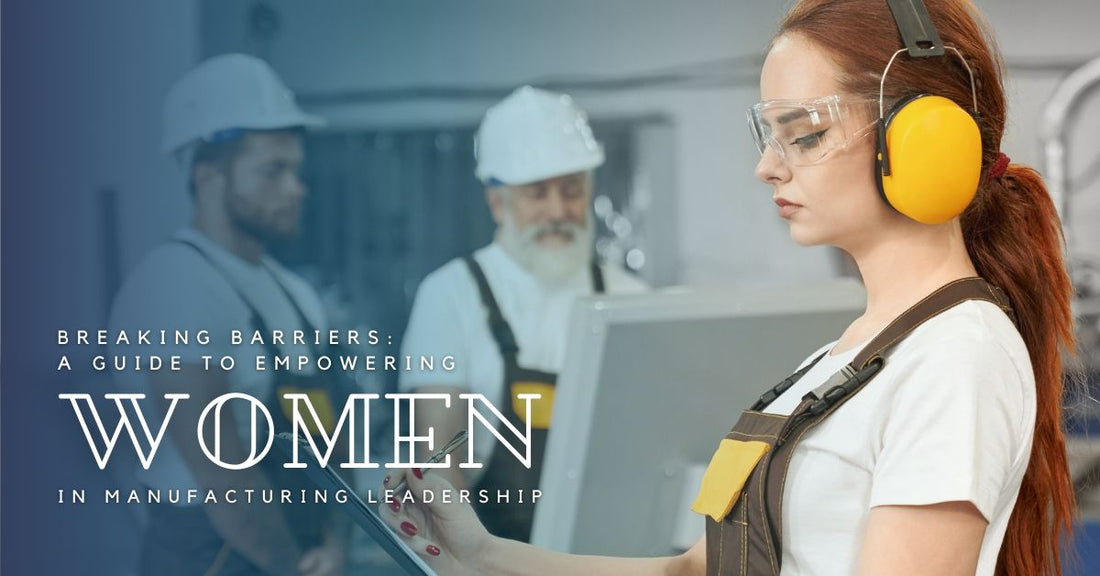
Breaking Barriers: A Guide to Empowering Women in Manufacturing Leadership
Discover how women are reshaping the manufacturing industry landscape through strategic career development, mentorship programs, and educational advancement. Learn about the growing opportunities, support networks, and practical steps to overcome traditional barriers in this male-dominated sector. Whether you're starting your career or aiming for executive positions, this comprehensive guide provides actionable insights for professional growth in manufacturing.
The manufacturing sector is experiencing a transformative shift as more women step into leadership roles, bringing diverse perspectives and innovative approaches to the industry. While challenges persist, numerous opportunities and resources are emerging to support women's advancement in manufacturing careers. Understanding these pathways and leveraging available resources can help ambitious professionals navigate their journey toward leadership positions.

This blog contains affiliate links, meaning I may receive a small commission (at no cost to you) if you subscribe or buy something through the links I share. I only share links to products or services that I use myself or absolutely love!
Breaking Into Manufacturing: First Steps
For women entering manufacturing, building a strong foundation is crucial. Industry-specific certifications, technical training and pursuing advanced education through online EdD programs no GRE requirements can provide essential credentials.
Professional organizations like Women in Manufacturing (WiM) offer networking opportunities, mentorship programs and resources specifically designed to support women's career development. These initial steps create a solid platform for future advancement and help establish credibility in the field.
Developing Technical Expertise
Success in manufacturing leadership requires a combination of technical knowledge and management skills. Focus on developing expertise in areas such as lean manufacturing, quality control, and production planning.
Pursue hands-on experience through various roles and departments to gain comprehensive industry knowledge. Consider specialized training programs and workshops that address emerging technologies and industry trends, positioning yourself as a valuable asset to your organization.
Building a Strong Professional Network
Networking plays a vital role in career advancement within manufacturing. Join industry associations, attend conferences, and participate in professional development events. Connect with other women in manufacturing through LinkedIn groups and local professional organizations.
These connections can lead to mentorship opportunities, job referrals, and valuable insights into industry developments. Building relationships across different sectors of manufacturing also broadens your perspective and creates potential career opportunities.
Leveraging Mentorship Opportunities
Mentorship is a powerful tool for career growth in manufacturing. Seek both formal and informal mentoring relationships with experienced professionals who can provide guidance, share insights, and help navigate workplace challenges.
Many companies now offer structured mentorship programs specifically designed for women in manufacturing. These relationships can provide valuable feedback, career advice, and support in developing leadership skills.
Advancing Through Leadership Development
Leadership development programs specifically designed for women in manufacturing can accelerate career growth. These programs often combine technical training with soft skills development, including communication, negotiation, and team management.
Look for opportunities to lead projects, manage teams, and take on additional responsibilities that demonstrate your leadership capabilities and readiness for advancement. Additionally, seek out cross-functional assignments and volunteer for challenging projects that showcase your problem-solving abilities and strategic thinking skills.
Overcoming Workplace Challenges
Address workplace challenges proactively by developing strategies to navigate gender bias and traditional industry cultures. Focus on building confidence, assertiveness, and effective communication skills.
Document achievements and maintain a portfolio of successful projects and initiatives. Stay informed about industry trends and continuously update your skills to remain competitive and valuable to your organization.
Creating Inclusive Workplace Cultures
Take an active role in promoting inclusive workplace cultures by participating in or initiating diversity and inclusion initiatives. Share your experiences and insights with other women in the industry. Support and mentor younger professionals entering the field.
Contributing to positive workplace culture change not only benefits others but also establishes you as a leader committed to industry advancement. Consider establishing employee resource groups and advocating for policies that support work-life balance and equal advancement opportunities.
Balancing Work and Professional Development
Successful career growth requires a strategic balance between current job responsibilities and professional development activities. Create a structured plan for continuing education, skill development, and networking.
Many organizations offer tuition reimbursement and flexible scheduling to support professional development. Take advantage of these opportunities while maintaining strong performance in your current role. Consider utilizing online learning platforms and virtual networking events to maximize your time efficiency and expand your professional growth opportunities.
The Future of Women in Manufacturing
The manufacturing industry continues to evolve, creating new opportunities for women in leadership positions. Stay informed about emerging technologies, industry trends, and changing workplace dynamics. Embrace the growing emphasis on data-driven decision-making and Industry 4.0 technologies that are reshaping manufacturing processes.
Position yourself for future advancement by developing skills in areas such as digital transformation, sustainability, and innovation management. Your unique perspective and experiences can contribute to shaping the future of manufacturing leadership. Focus on building expertise in artificial intelligence, robotics, and smart manufacturing systems while maintaining a strong commitment to sustainable practices and workforce development initiatives.
Remember, success in manufacturing leadership requires persistence, continuous learning and strategic career planning. By leveraging available resources, building strong professional networks and maintaining focus on professional development, women can overcome traditional barriers and achieve significant career advancement in the manufacturing sector.
Related Articles
-

10 LinkedIn Mistakes That Cost Job Seekers Interviews (How to Fix It)
Guest blogger outlines how to avoid these LinkedIn mistakes to drastically improve your chances of being noticed, whether you’re actively job hunting or just trying to grow your professional presence.
-
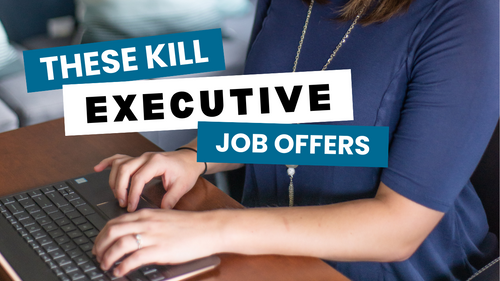
The Harsh Truths About Executive Resumes: What Not to Do
Avoid the most common executive resume mistakes that cost you interviews. Discover actionable resume tips to stand out and land C-level roles.
-
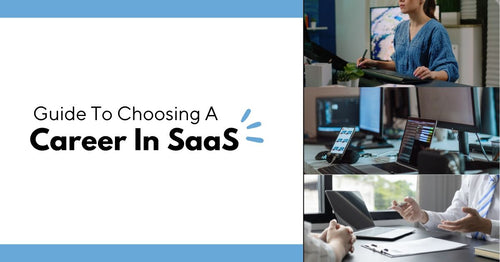
Guide To Choosing A Career In SaaS
Thinking about a career in SaaS? Guest blogger Jacob Wickett shares top roles, key skills, and how to break into this fast-growing industry.
-
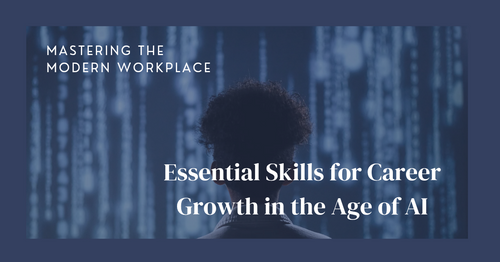
Mastering the Modern Workplace: Essential Skills for Career Growth in the Age of AI
Guest blogger Sadie Smith shares a comprehensive guide to help professionals navigate unprecedented changes driven by technological advancement with confidence.
-

Navigating Your Career Path with a Family Nurse Practitioner Degree Program
Guest blogger Sadie Smith reveals how strategic planning in your healthcare career broadens your impact on patient care and community health.
-

Career Transitions: Navigating Your Path to Success in Healthcare and Beyond
Guest blogger Sadie Smith shares how to leverage your existing skills and experience while pursuing new career opportunities in healthcare and other industries.
-
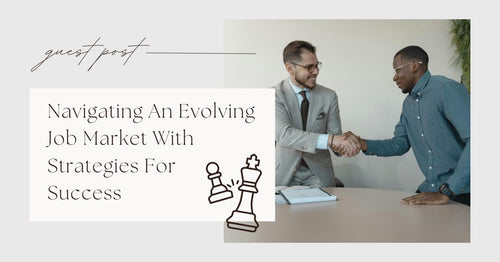
Navigating An Evolving Job Market With Strategies For Success
To thrive in a dynamic job market, you need to continuously adapt your job search strategies. Stay informed and flexible to position yourself for success.
-

Can Workplace Harassment Occur Over Social Media?
Guest blogger Caren Sainz breaks down how to set clear boundaries and seek legal assistance if you're a victim of workplace harassment over social media.
-

4 Personal Assistant Interview Questions and Answers
Guest blogger Liza Griffen, co-founder of Tyler Griffen, equips you with a deep understanding of typical interview questions and practical answers to help you showcase your skills effectively whether you're aiming to impress in your first personal assistant role or looking to step up in your career.
-

Crack Your Dream Company Interview
Guest contributor Nandkishore Rathi shares practical tips, strategies, and insightful advice from career experts to help you shine during written and verbal interviews.
-
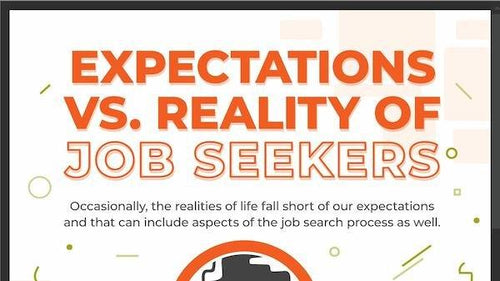
Exploring The Realities Of Job Hunting (Infographic)
Guest contributor Joseph Matalone delves into common expectations in job seeking and the contrasting realities.
-

Don't Panic: 15 Ways To Prepare For A Video Interview
Guest blogger Daniel Boyce with Aware Recruiter delves into 15 actionable steps to prepare you for a stellar video interview experience whether you're a seasoned professional or just stepping into the job market.
-

5 Signs That A Company Values Employee Wellness And Safety
Guest blogger Sharon Feldman shares how asking questions about wellness and safety in your interview could give you insight into a company’s values.
-

Can An Employer Fire You For Being Sick?
Many employers can terminate an employee for falling sick frequently. Guest blogger Natalie Padilla shares all you need to know regarding being fired by an employer.
-
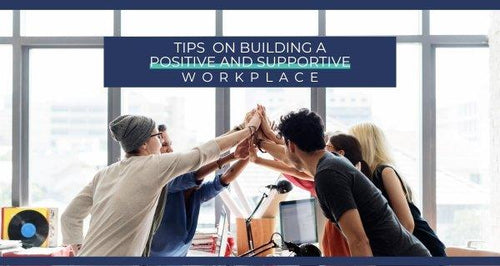
Tips On Building A Positive And Supportive Workplace
Guest blogger Adam Blacksmith shares how to embrace communication, celebrate diversity, and empower your team for success by fostering a positive and supportive workplace culture.
-

AI: Transforming Networking, Interviews, and Careers
Guest Author, Dean Fankhauiser. discusses how AI is revolutionizing networking, interviewing, career planning, and professional advancement.
-

Preparing for Different Interview Formats: Phone, Video, and In-Person
Interview Coach Ellie Hoekman shares specific preparation steps for phone, video, and in-person interviews.
-

Negotiating A Competitive Salary
Guest blogger Rohan Singh shares strategies for negotiating a fair salary that reflects your worth and fulfills your goals.
-

Can My Employer Ask Why I’m Taking A Sick Day?
Guest blogger Samantha Larson shares whether your employer has the right to ask you why you are sick and how much information they are entitled to when you take a sick day at work.
-

The Benefits of Coaching in the Workplace
Guest blogger, William Powell, shares some of the concrete examples of the benefits associated with employee coaching.
-

10 Facts & Stats About Sexual Harassment in the Workplace
Guest blogger Sharon Feldman shares how many people experience harassment every day, including at their place of work, to increase awareness.
-

The Ultimate Temping Guide for Beginners
Guest blogger Auria Heanley with Oriel Partners shares insight into what a temp job is and what to expect in order to make the most of a new job opportunity.
-

High Paying Career Paths After Learning Python
Guest blogger Rose Young with Codebasics.io shares some of the promising career paths you can explore after learning Python programming.
-

How To Ace Your Interview With A Staffing Agency
Guest blogger William Powell shares how to prepare adequately for an interview with a recruiting agency to increase your chances of landing your dream job.
-

How Do You Know When It's Time To Quit Your Job?
Guest blogger Katie Meyers shares when quitting your job is the right thing and how to go about it.
-

5 Things You Need To Know About Job Interviews To Succeed
Guest blogger Marcus Ralph shares 5 tips on what you can do before a job interview to be best prepared to make a solid first impression and land the job.



























